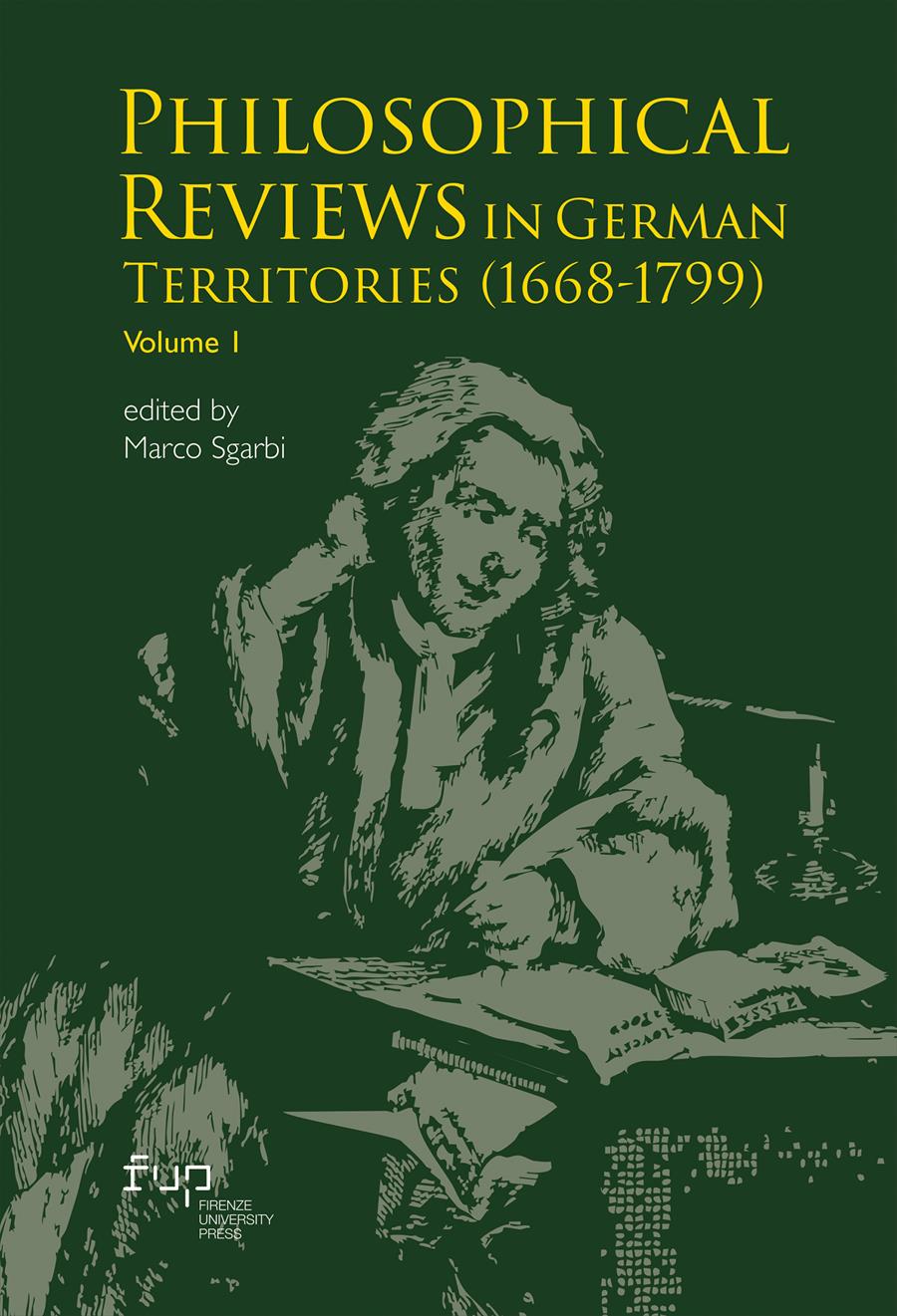
Altre news
Philosophical Reviews in German Territories (1668-1799)
Volume 1
24/02/2025
This book is the first of a number of volumes that will be published in this series with aim to offer the first complete and systematic study of the rise of the philosophical review in German territories between 1668 and 1799, adopting the methodology of the discipline of the history of knowledge. The time span corresponds to two unsuccessful attempts by Gottfried Wilhelm Leibniz and Johann Gottlieb Fichte to establish review journals. T he birth of the periodicals in the second half of the seventeenth century – especially with the foundation of the Journal des Sçavans and the Philosophical Transactions 1665 – has been a watershed in the dissemination of knowledge leading to the establishment of a new literary genre, that of review. Despite the enormous interest of scholarship in the history of journals, philosophical reviews have been considerably neglected. The basic idea of the project is to fill this gap working on the fact that philosophical reviews are not to be considered merely as intellectual modes of communication or cultural media, but have to be credited with their own philosophical dignity; an aspect often neglected by the scholarship. Indeed, the history of philosophical reviews is an uncharted territory and waits to be written. While there is a large bibliography on journals, counting for instance more than 1,700 titles for France only, reviews as a literary genre have been neglected by historians of knowledge so far. Scholars have stressed the role of book reviewing for the rise of literary criticism and for information management, others have shown the peculiarities of review journals in tracking the reception and transmission of books and ideas across borders, but still their focus is on journals, not reviews as such. In general, they complain in particular that reviews have “not been subject to thorough and systematic study.” Reviews play a secondary role also in the scholarship of the history of philosophy. Indeed, only a handful of specific studies on notable cases has aroused some scholarly interest. Reviews are generally credited a certain role for philosophy in studies on the reception of philosophers like Spinoza in England, Locke in France or Germany, Hume in Germany, Newton in Italy etc. Overall, scholars have not paid due attention to the role of reviews in shaping – rather than passively mirroring – the prevailing trends in philosophy. Reviews have been conceived of as mere means of diffusion of ideas, but not as platforms actively promoting new philosophical ideas and discussions. Especially in Germany, in spite of the number of projects on journals in Germany during the period, no research project has been devoted to the impact of reviews in the shaping of philosophy. T he convergence between the history of knowledge and the history of philosophy is a desideratum, which will help overcome the usual, superficial view of considering reviews as brief and descriptive reports or summaries, devoid of any philosophical import as scholars tend to assume. The integration of the methodology of the history of knowledge into the practice of writing history of philosophy intercepts five transversal vectors of study (1. knowledge management; 2. philosophical transfers; 3. authorities and monopolies; 4. anonymity and authorship; 5. professionalization), which helps to understand how and why reviews had such an important role in early modern philosophy. About knowledge management, the early stage of journal was a period of experimentation, and there were different kinds of reviews which reveal different knowledge management systems. Among the various genres of review, it is possible to count critical evaluations, summaries, abstracts, extracts, announcements or advertisements, self-reviews and letters. Critical evaluations are the most interesting for reconstructing what were the interests, the criticism, the weak and strong points of the work. They are usually either positive or negative, never indifferent, and they reflect reviewers’ position in confrontations to the new ideas. Almost lacking in a critical assessment and indifferent to the doctrines are summaries and abstracts. They provide in very few paragraphs, or at maximum in one page, the content of the book. They are mainly descriptions of the table of contents. Nonetheless also this kind of review is important to establish the interests of reviewers and what readers could know of the work. The extracts were so important that journals were devoted only to them, introducing for the first time in another language works hitherto unknown. Announcements or advertisements are mere strings in which it is declared the publication of the work: these testify the rapidity of the dissemination of a work. While self-reviews resulted to be a common practice of self-promotion or self-criticism, especially when the reviews were anonymous. Letters to the journal are reviews in defence of another bad review or to complain for the absence of a review.